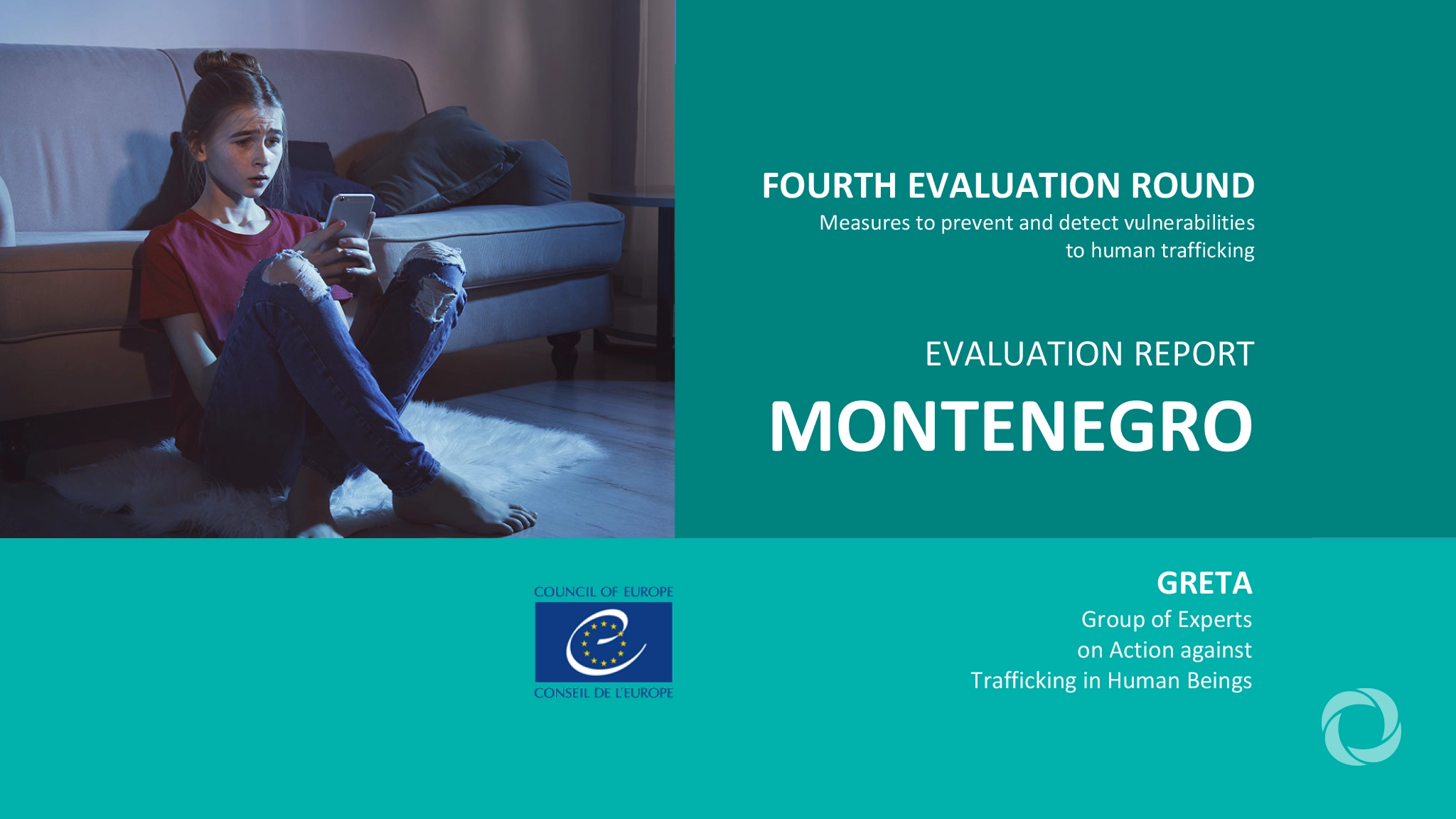The Council of Europe‘s anti-trafficking expert body, GRETA, has released a new report evaluating Montenegro’s progress in combating human trafficking since 2021, according to a press release. The report examines steps taken to address trafficking risks among vulnerable groups, detect and support victims, and prosecute offenders. Montenegro identified 67 trafficking victims between 2021 and 2024, with children making up 79% of cases—most trafficked for forced begging, forced marriage, and sexual exploitation.
Montenegro serves as a country of origin, destination, and transit for trafficking victims. Members of the Roma and Egyptian communities, particularly women and children, along with stateless persons, migrant workers, and asylum seekers face heightened vulnerability. The report welcomes Montenegro’s adoption of a non-punishment provision for trafficking victims compelled to commit offenses, amendments to the Law on free legal aid, and a revised agreement on cooperation between authorities and civil society in combating trafficking.
GRETA calls on Montenegro to better protect migrant workers, whose numbers have grown due to labor shortages. The body recommends issuing work permits that allow workers to change employers, setting up safe reporting mechanisms, and making interpreters available during workplace inspections. The report also urges authorities to prevent asylum seekers and refugees from becoming trafficking victims by improving their access to the labor market and health care, and to increase resources for centers for social work to provide better protection for unaccompanied children.
While praising Montenegro’s multi-disciplinary approach to victim identification—which operates independently of criminal proceedings—GRETA notes gaps in the system. The report expresses concern about the absence of a shelter for male trafficking victims and calls for transparent processes in approving and revoking licenses for NGOs running shelters. GRETA also points to the internet’s growing role in recruitment and exploitation, particularly of children, and recommends developing digital tools for proactive investigations and stronger cooperation with tech companies and internet service providers.
The report repeats priority recommendations from previous evaluations that remain unaddressed, including ensuring effective access to compensation for trafficking victims, systematically granting a recovery and reflection period to foreign trafficking victims, and conducting proactive investigations with adequate police resources. GRETA also stresses the need for Montenegro to address poverty and social exclusion among Roma and Egyptian children and ensure full access to civil registration procedures for persons at risk of statelessness.

